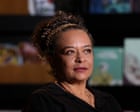
In a series of heartening developments across the world, individuals are making remarkable strides in literature, justice, and creative expression, each contributing to a more inclusive and understanding global society.
In Brazil, a significant milestone has been achieved in the realm of literature and cultural representation. For the first time in its 128-year history, the Brazilian Academy of Letters has elected a Black woman, Ana Maria Gonçalves, into its prestigious circle. Known for her acclaimed novel, “Um defeito de cor,” Gonçalves has been a prominent voice in Brazilian literature. Her election is being widely celebrated by writers, activists, and even President Luiz Inácio Lula da Silva, highlighting a growing recognition of diverse voices and histories within Brazil’s cultural institutions. This step forward reflects both an acknowledgment of systemic inequities and an ongoing effort to create a literary world that mirrors the rich multicultural society of Brazil.
Meanwhile, in Sydney, the family of Maha Almassri, a 61-year-old Palestinian grandmother, is seeking clarity and compassion from Australian immigration authorities. Almassri, who fled the challenging conditions of Gaza in early 2024, resides in Sydney under a bridging visa while applying for protection. Recently, she was detained after a pre-dawn raid, igniting a plea from her family for the Australian government to reassess her visa cancellation and provide her the opportunity for a fair representation. This case underscores the complex narratives surrounding migration and asylum seekers, shedding light on the delicate balance between national security and humanitarian responsibilities. The family’s appeal emphasizes the essential human connection at the heart of migration issues and the importance of treating everyone with dignity and empathy.
Across the European continent, another form of narrative advocacy unfolds. Iranian filmmaker Nader Saeivar is using his craft to highlight the challenges faced by women in Iran. While touring Europe to present his latest film, “La femme qui en savait trop,” Saeivar brings attention to the resilient spirit of Iranian women amidst daunting obstacles. The film, shot clandestinely in Tehran, showcases not just a narrative of struggle, but a testament to the perseverance and strength that Iranian women embody. In demonstrating these stories, the filmmaker not only introduces European audiences to Iran’s cultural fabric but also fosters a broader dialogue around the roles and rights of women worldwide. His work exemplifies the power of film as a tool for empathy and understanding, bridging cultural divides and inspiring audiences to reflect deeply on the shared human condition.
Together, these narratives reflect a tapestry of resilience and advocacy shaping our global society. Ana Maria Gonçalves’s inclusion within a historic literary institution exemplifies progress towards acknowledging and valuing diverse cultural contributions. The plight and strength of Maha Almassri and her family highlight the ongoing conversation surrounding immigration and the imperative of humane legal processes. Meanwhile, Nader Saeivar’s cinematic endeavors serve as a stark reminder of the courage needed to voice the stories of those who often remain voiceless.
Each story unfolds within its unique context, yet they collectively resonate with the universal themes of justice, inclusion, and the relentless pursuit of a world that respects and celebrates all histories and identities. Through literature, advocacy, and film, these individuals and their stories remind us of our interconnected destinies and the shared responsibility to uphold values of compassion, justice, and equity.
Source: {link}
